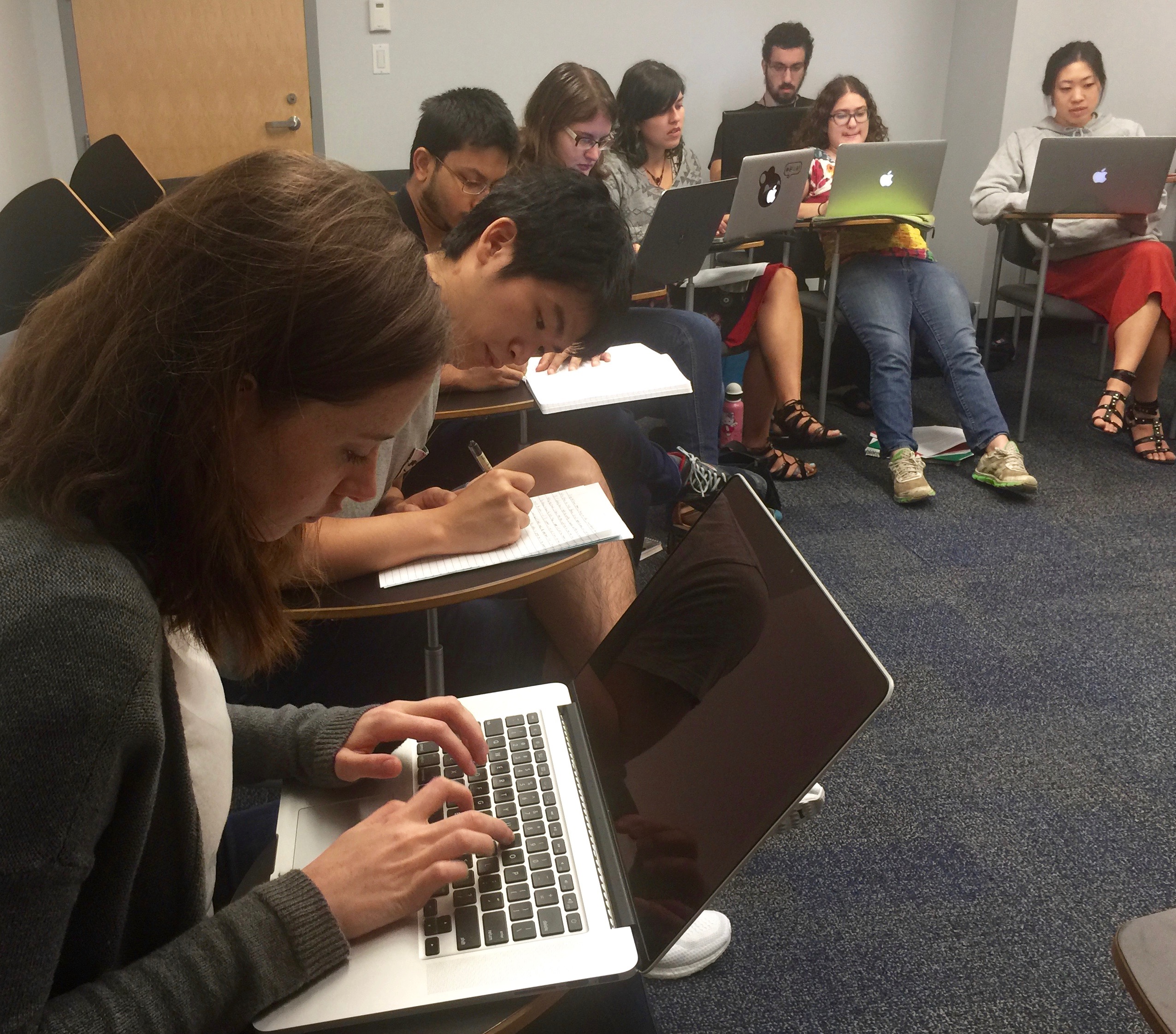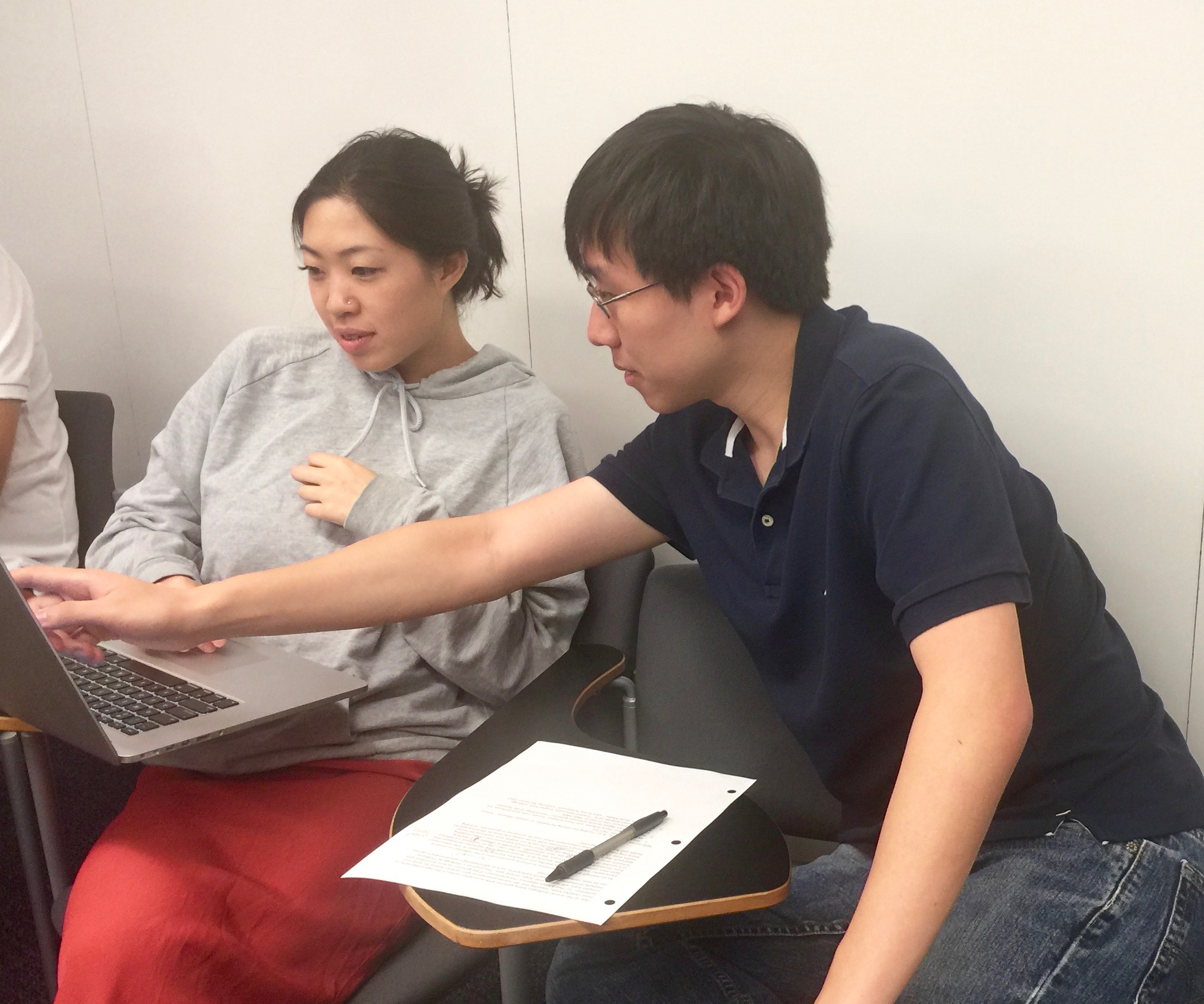Dear Janet,
I still remember the expressions of dread that appeared around the classroom when you announced our first seven-minute writing sprint. But just as you promised, we soon began to relish these exercises, surprising ourselves weekly with the amount of text we could produce. It wasn’t just the number of words that astonished me, however; it was the ready proliferation of ideas. This uninhibited state of mind, in which images arose in quick succession and connections fell effortlessly onto the page, felt like the definition of “writing heaven.”
I have always found metaphors instructive in framing a state of mind, and one metaphor in particular (from class!) has allowed me to recreate that “writing heaven” in my own time. It is the expressive analogy of carving out the final form of a composition – starting with a rough, unhewn slab of material, and whittling toward a perfect shape through a succession of cuts.
This metaphor has transformed my writing process, allowing me to draft with greater ease. As somewhat of a perfectionist, I find it helpful to take the pressure off the initial drafting process. With carving in mind, my goal for a first draft is not to erect a flawless sculpture from the ground up, but to produce an excess of starting material. I draft with the expectation that the result will be unpolished, and that many parts will be superfluous. Just as carving must begin with a generous slab of rock or wood, this “outpouring” step is indispensable to the process of writing.
There is another, subtler aptness to this metaphor. In carving, the final artwork is often informed or inspired by the initial, organic shape of this slab, the contours of which may hint at a form or gesture. Analogously, in writing, when I step back after the outpouring of material, I am often able to trace out a shape in my writing – a story, a theme, a thesis. Perhaps it is the communicative purpose: the way I, the writer, aim to affect the reader’s internal state.
Having fully fleshed out my communicative purpose in the drafting stage, I have space in the editing phase to focus on successful rhetorical writing. By my personal definition, this involves interrogating each device, each word, sentence, and paragraph, and asking what work it does. Does it make my writing more compelling? How can I make each expression work harder for my communicative purpose?
In editing together as a class, we elevated excellent compositions by engaging in this type of interrogation. We would drill to the intended meaning and function of a sentence, then work out how to express that purpose with the utmost clarity and impact. We also made note of how stylistic decisions aided or impeded our intended effect on the reader. I noticed, for the first time, just how much my classmates and I did in the way of hedging. Targeting unnecessary adverbs and passive voice improved the clarity and confidence of my writing.
“. . . We approach style in its broader meaning: style in the sense of what is distinguished and distinguishing. Here we leave solid ground. Who can confidently say what ignites a certain combination of words, causing them to explode in the mind? Who knows why certain notes in music are capable of stirring the listener deeply, though the same notes slightly rearranged are impotent? These are high mysteries . . .” E.B. White
I am inspired by the E.B. White quote, the very same quote you included in the final assignment description, that interprets style in the sense of what is “distinguished and distinguishing.” Distinguished and distinguishing – these words resonate with me. As a second-year PhD student, it is encouraging to recognize that joining a distinguished academic community allows room for differentiation and personality. If executed with good taste, standing out can certainly pay off.
I ruminated on these words during one of the more challenging writing assignments of the semester: the letter of request for funds. This email, like any application, called for painstaking consideration of tone and register. Applications suggest a need to conform to roles and values, which I have never found to be particularly inspiring; in fact, having worked my way through college applications, internship applications, jobs applications, graduate school applications, and grant applications, I have come to accept that applying for things is simply an excruciating fact of modern life.
In considering that nugget from E.B. White, however, I grasped that an application by nature should be both distinguished and distinguishing. Thus, the task invites more personal expression than I had previously recognized. I chose to take a risk in exposing more of myself in this assignment as a result – more personality, more emotion – and was pleased with the result.
I also enjoyed the blog post, one of those rare assignments that have almost no constraints at all. I think the piece I produced for this assignment, out of all the others, most closely captures my voice and point of view. It was fun to compose a casual piece of writing with just as much rhetorical rigor as a more formal writing assignment. I took away the lesson that the ideology of rhetorical writing is applicable to every kind of writing, regardless of purpose or audience. Every piece deserves to be infused with style, treated with respect, and elevated to excellence.
Thank you for a fun and enlightening semester, Janet! I will continue to explore the space of possibilities around my writing, and hope you will continue to be a part in my development.
Sincerely,
Melody
November 1, 2016



